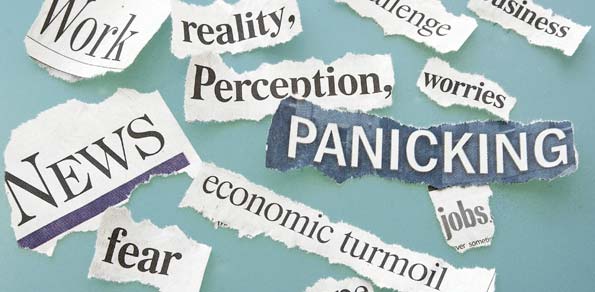Negative sentiment returned to financial markets as the world slept with investors worried that the European heartland is now at risk of tumbling into recession.
The flash PMI estimates for China, France, Germany and the wider Eurozone are published in quick succession on yesterday. Previously, the Markit Eurozone Composite PMI signalled a renewed contraction in euro-wide activity in February.
Eurozone slides back into recession as output falls at stronger rate in March as shown in the new report.
The Markit Eurozone PMI Composite Output Index fell from 49.3 in February to a three-month low of 48.7 in March, according to the preliminary ‘flash’ reading, which is based on around 85% of usual monthly replies. The latest reading signals a contraction in business activity for the second successive month and the sixth decline in the past seven months.
But investors are concerned that the two prime economies now appear to feeling the effects of the debt crisis that is ravaging many of the smaller eurozone economies. At the same time, German and French manufacturers are also grappling with the recent spike in oil prices, which have pushed the input prices to a nine-month high.
The weakening in the eurozone’s economic routine comes despite the ECB’s move to inject more than €1 trillion into the EU banking system, which has boosted financial market confidence and lulled economist, investors and bankers into a false sense of recovery.
ECB cheif Mario Draghi appeared confident that the eurozone’s debt crisis was abating. “The worst is over but there are still risks,” he said.
[quote]The situation has stabilized. The key data for the eurozone – such as inflation, the current account and, crucially, the public deficit – are better than in, for example, the US. Investor confidence is returning[/quote]
This statement alone shows the dream world that European bankers seem to be living in. They seem oblivious to the continued problems in Spain, Portugal, Italy and as of yesterday, Ireland feel back into recession.
Critics argue that the ECB’s actions have left Europe with a zombie banking system. Many European banks are completely hooked on ECB liquidity but are still reluctant to lend to each other, or to provide credit for businesses. Meanwhile, the depressed economic outlook has caused many European businesses to cut back their investment plans, which will diminish future economic activity.
A prior top economic adviser to German Chancellor Angela Merkel, acknowledged that Germany was doing relatively well compared to other European countries. “But it’s not exactly ambitious when the federal structural deficit is expected to rise this year, and the federal government only wants to balance its budget in 2016,” he said.
Now that the sleeping giant of the East is feeling the economic slowdown, which will eventually flow back to the eurozone, it is time for Banker, and Lawmakers to open their eyes and figure a long term solution, that is more than austerity, and a hope and see attitude.





